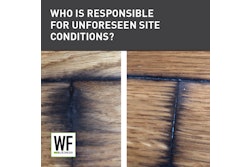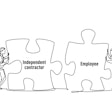
Schedules and completion dates are important aspects of construction projects. Unfortunately, factors outside of our control can make completing the work on time not possible. During the height of the recent pandemic, supply chain issues, labor shortages and government shutdowns impacted project timing. Those delays resulted in many disputes, and parties were forced to scrutinize the rules regarding who bears responsibility for delays.
The first place to look is the parties’ agreement. Agreements commonly do not contain a specific completion date. In that case, the contractor has more leeway if delays occur. If the agreement contains a specific completion date with no exceptions, it is difficult to claim extra time to perform. The contractor will either need the customer’s agreement or rely on other legal theories.
A common argument in a delay situation is relying on a “force majeure” or “act of God” clause, where an unforeseen event excuses performance. There is no “force majeure law,” and the contract must contain a force majeure clause for a party to invoke this excuse. Even if the contract contains this clause, in many construction scenarios it will not be helpful. The party must show the event was “unforeseen” and that delays in the construction industry were not only foreseeable but often expected.
If the agreement does not contain a force majeure clause, the theories of “impracticability of performance” or “impossibility of performance” might be available. “Impossibility” of performance means that performance is literally impossible and not just more difficult or expensive. “Impracticability” of performance means that through no fault of the affected party, performance is impracticable due to an event the parties assumed would not occur. This theory is more related to increased costs than to delays. Like force majeure, “impracticability” requires the event to be unforeseeable. Further, the party must prove the extra costs or unforeseen hurdles are so excessive that performance is unreasonable. There is no clear threshold, but courts have consistently required a very significant cost increase before performance is impracticable.
The best hedge against unforeseen delays is including language in the agreement about things the contractor cannot control. For example, a delay in the delivery of materials or products will extend the completion date on a day-for-day basis. Another strategy is keeping the agreement vague and stating no firm completion date. With no hard deadline, it is difficult for the customer to argue that the contractor is late. Finally, I recommend including a waiver of consequential damages. Then, if there is a delay, the customer may not claim the contractor is liable for other amounts, such as additional mortgage interest, extra lodging costs or other costs or losses caused by the delay.

































